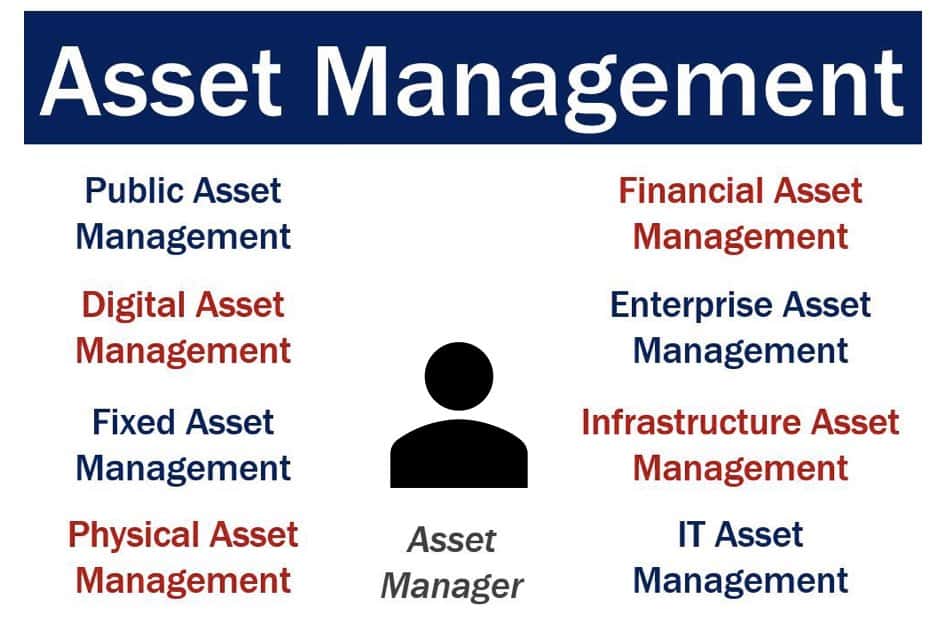Asset management refers to the management of people’s assets. The term also applies to dealing with other organizations’ or companies’ investments. Assets include either intangible or intangible assets.
Intangible assets are things we cannot touch such as intellectual property, goodwill, financial assets, or human capital. Tangible assets, on the other hand, are things we can touch and including buildings, land, computers, or office equipment.
Effective asset management also involves strategic planning to align with an individual’s or organization’s long-term financial goals.
Asset managers
The person in charge of managing other people’s assets is an asset manager or investment manager. The asset manager could also be a firm. Their aim, above all, is to make as much profit as possible for their client.
Asset management firms have expert portfolio managers, as well as access to internal, detailed equity research studies. Asset managers claim that this access gives them an edge over investors in charge of their own money.
In other words, asset managers claim they are better at making investments grow than their clients.

In accounting and finance, an asset is anything with an economic value that we can own.
Asset managers typically work for rich people, sovereign wealth funds, corporations, governments, and pension funds.
These specialized individuals or firms charge a fee. In most cases, the fee is a percentage of managed funds. They may also take a percentage of profits, although this starts to encroach upon hedge fund territory.
Furthermore, asset management plays a pivotal role in diversifying investment portfolios to spread and mitigate potential risks.”
Asset management is a huge industry
The State Government of Victoria in Australia says asset management is relevant to the whole of asset life. Additionally, it encompasses the four main stages of the asset life cycle, which are:
- Informed and hands-on decision-making regarding asset investment.
- Procurement of suitable assets.
- Maintaining, upgrading, and operating assets.
- Managing asset treatment at the end of their useful life.
Vocabulary and concepts
There are many terms in business English related to “asset management,” especially compound nouns. A compound noun, such as “asset management plan,” is a term consisting of two or more words. Let’s have a look at some of them, their meanings, and how they are used in a sentence:
Asset Management Company: A company that invests its clients’ pooled funds into securities that match declared financial objectives.
Example: “The asset management company released its quarterly earnings report, which showed a significant return on investments.”
Asset Management Plan: A strategic plan detailing the management of an organization’s assets to deliver the organizational objectives.
Example: “The municipality developed an asset management plan to ensure the optimal operation of its infrastructure assets.”
Asset Management System: The system and processes that an organization uses to manage assets across departments, facilities, business units, and geographical locations.
Video explanation
This educational video we created explains what the term “asset management” means using easy-to-understand language and examples:
